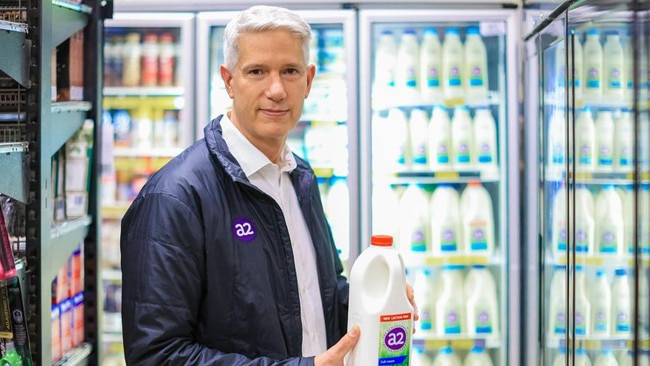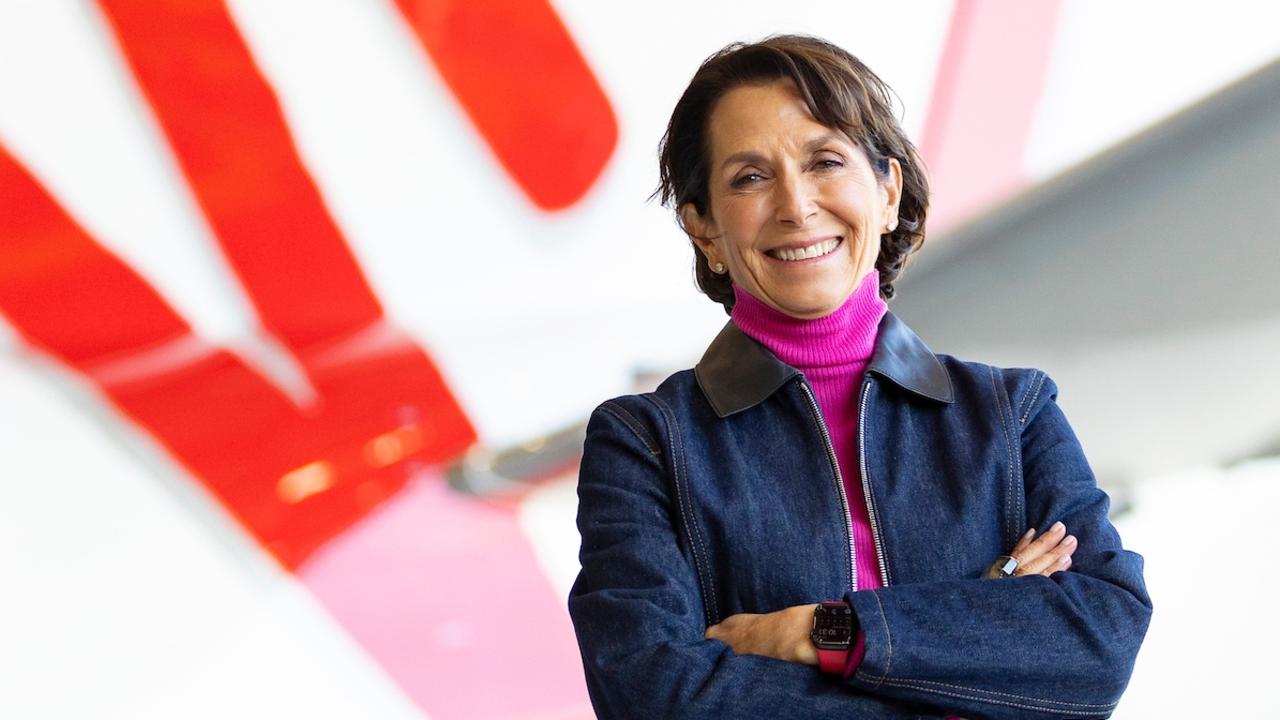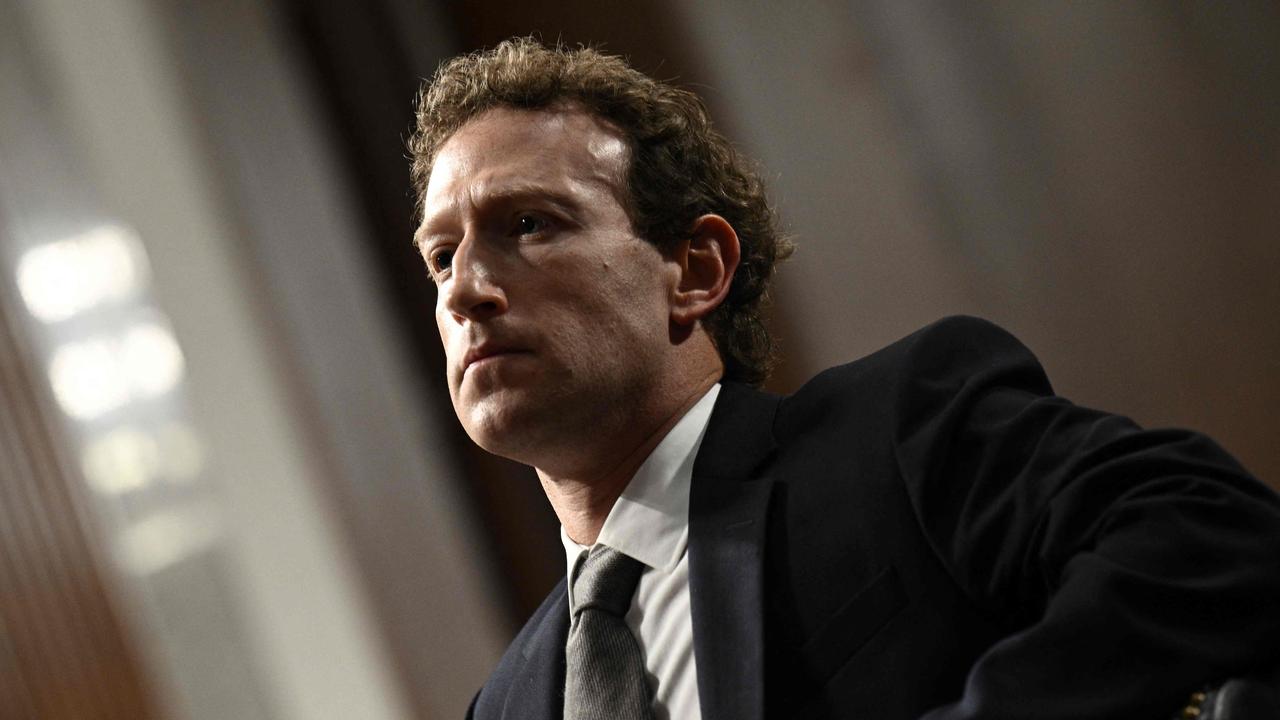Investors dump a2 Milk on profit miss, China woes
The one-time market darling has made a costly decision to send infant formula milk to China by air amid supply chain issues as it looks to take advantage of a birthrate boost.

A2 Milk will look to airfreight infant milk formula into its cornerstone Chinse market as it warns investors it faces increased competition and challenging macroeconomic conditions, following smaller-than-expected profit growth.
The New Zealand-based company’s outlook was worse than market expectations, as it cautioned growth would be affected by infant milk formula supply constraints in China and further value declines in the market.
A2 Milk increased profit in the 2024 financial year by 7.7 per cent to $NZ167.6m, coming in below analysts forecasts of $NZ173.3m. The group recently settled its disputes with contractor and partially-owned group Synlait.
It came as shares in a2 Milk plunged 18.7 per cent to $5.70 per share on Monday following its earnings miss, but amid concern about its outlook for the 2025 financial year, which Citi analysts said was conservative and less than the 9 per cent markets had forecasted.
The number of newborns in China declined 5.6 per cent in 2023, and while an expected baby boom is forecasted this year due to the year of Dragon, a2 Milk said longer term declines are expected due to socio-demographic trends.
Chief executive David Bortolussi said, while China would still have 40 per cent of the world’s infant market in one country despite the falling birthrate, the company was now looking to expand elsewhere and become more relevant to families over their life cycle.
“We’re increasingly focusing on our other Nutritionals category, and that’s fresh milk, UHT milk, powdered products, fortified products for the family, for kids, adults and seniors,” he said.
“That’s an important focus of us going forward and then outside China, we’re also starting to explore other markets. We’ve gone into Vietnam; we’re arranging fresh milk in Singapore, and over time we will expand into the other nutritional category and explore other Asian markets.”
Mr Bortolussi said the company saw scope to further its reach in the US, and the Middle East was also appealing as a new frontier.
To meet an expected short-lived boost to newborns in China this year, the company has said it plans to airfreight the early stage inventory to the world’s second largest economy as it becomes available amid supply chain disruptions impacting the availability of early stage products.

Citi analyst Sam Teeger said factors behind weaker-than-expected revenue and margin outlook for the fiscal year are short-term and primarily related to moves to airfreight inventory, which will have a $10m margin drag.
“While it will be a margin drag, it should help ensure that the company has product in market to cater for new customers as the increased 2024 births come through, which should also benefit future year earnings given customers will typically stay with the brand for a few years,” he said.
A2 Milk was able to grow total IMF sales by 4.6 per cent, despite the overall China IMF market down 10.7 per cent in value in the period. Its China label IMF saw sales lift 9.5 per cent, while English label sales stabilised in the second half as it increased market share to 20.2 per cent on growth in emerging channels including Douyin/TikTok and Red.
Mr Bortolussi said a2 Milk had been more successful than other brands in transitioning its China label business following a change in standards last year and benefited from increasing its market investment behind the brand from $260m to $280m.
A2 Milk on Friday settled arbitration disputes with its key supplier, Synlait, which has agreed to end an exclusivity arrangement in return for a $NZ25m payment, allowing the dual-listed company to manufacture its own infant formula.
Cash-strapped Synlait has been working on a capital raise which a2, which has a nearly 20 per cent stake in Synlait, has agreed to support.
Mr Bortolussi told The Australian the dispute had been an “incredible distraction” for both businesses, but now allowed a2 Milk to have more security over its existing supply, with it currently the only major infant formula company without control of its manufacturing capability.

It will also enable the company to further its reach after Synlait agreed to enable it to access a second China production slot at its Dunsandel factory.
“This agreement provides us with flexibility in the future, so the removal of our exclusivity commitment to Synlait and confirmation of our IP ownership of the products specifications enables us to be free in the future to either to continue to source from Synlait, to source from third parties, or to insource into our own facilities as well,” he said.
“Our supply chain transformation strategy is focused on building nutritional capability, and improving our market access to China. So, that’s partly through Synlait, but also we need to own, control and develop ourselves in the future.”
A2 Milk has forecasted revenue growth of mid-single digit per cent and EBITDA margin to be similar to FY24 — with growth affected by IMF supply constraints expected to be resolved in the first half, while China’s IMF is due to show further value declines.
A2 Milk also pushed out the path to profitability for the US business, noting “the time frame to achieve profitability is now more likely to be by the 2027 financial year” given investing in the potential IMF opportunity.
For the past financial year, underlying earnings rose 6.9 per cent to $NZ234.3m, with an EBITDA margin of 14 per cent.
A2M shares closed 18.7 per cent lower to $5.70 per share.





